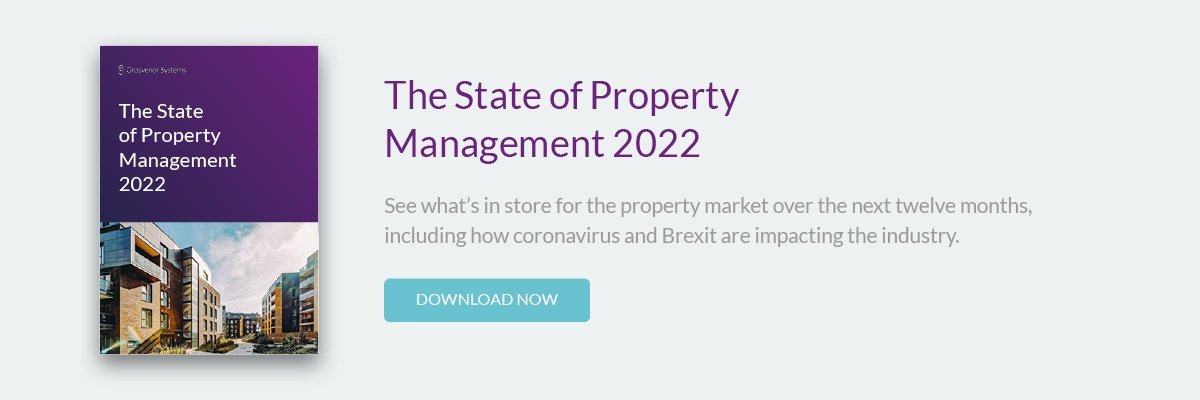How Property Management Software Can Enhance Data Analytics
Property management software has countless benefits — but perhaps the most important is the ability to better source and analyse data so you can keep a close eye on your property business.
Software such as Propman has built-in analytics functionality. Read on to see what this means for your regular reporting actions.

1. Provides a Single Source of Truth
The most critical aspect of built-in analytics is its ability to provide a single source of truth. Taking information from your CRM and accounting dashboard to create reporting that’s free from error, property management software ensures your data doesn’t conflict with any other source.
With this, you can be confident your marketing claims are true, your successes are set in stone and your team is free from siloes.
Trusting your data goes a long way in helping you perform accurate and effective analysis. Otherwise, what’s the point in tracking data you’re unsure about?
With all-in-one software, you’ll never need to mediate between two teams’ results or painstakingly compile reports to find an average. Instead, every number you need to know is stored in a singular system, available for everyone to see.
2. Saves Time and Eliminates Error
As you enjoy a single source of truth, you’ll inevitably save time and eliminate human error. This could shave the number of conversations you have surrounding reporting between teams or create an accurate report by merging disparate results into one spreadsheet.
More than this, built-in analytics replaces manual data input and replaces it with innovative, automated reporting. Although you can export data into a spreadsheet for further analysis if you need it, property management platforms like Propman can compile reports on your behalf, so you don’t have to painstakingly put together spreadsheets, you can simply use them for their best features.
This all means you can work towards a more streamlined process, transition from time-consuming spreadsheets and find time for more top-level activities — like overcoming the challenges that data makes apparent or jumping on opportunities your new, improved reports make glaringly obvious.
3. Creates Customised Reports
Customised reporting is a huge benefit of property management software. While static spreadsheets allow you to input data, they have no analytic functionality, which is the actual act of determining what data means.
The enhanced reporting capabilities of property management software means you can compare two or more variables against one another and review metrics in a given timeframe.
This can confirm suspicions you may have about an area of your business and arm you with evidence to make changes. Whatever your reporting needs are, analytics functionality can help meet them — and that’s what’s so great about property management software.
If you’re stuck using spreadsheets, your analysis may only go so far as to cast an eye over the numbers. At best, you might take the time to program-specific formulas. But that process can be much easier when a computer does all the hard work for you.
4. Enables Regular Updates
While you can create custom reports, you can also schedule them to appear in your inbox just in time for an important meeting or for you to write a well-informed company-wide newsletter.
Choosing a frequency for reporting can help you stay on top of which projects are progressing and where your business lacks some steam.
As the saying goes, what gets measured, gets improved. However, it can be hard to make room for reporting if your business is thriving, embarking on a growth strategy or your other responsibilities are taking over. Scheduled reports can act as a great reminder to spend some time taking a step back from the action and make it more efficient for you to glean insights at a glance.
5. Aids Absolute Comparison
When taking data from multiple sources, it can be difficult to create an absolute comparison, where two variables are fairly stacked against each other. This issue doesn’t exist when accounting and all additional administrative information are input into the same platform.
Not only will your teams work in harmony, but this unison will also be felt in your reporting actions. For example, you can work out customer lifetime value (CLV) by accurately pairing up invoices and account information.
Though this may sound like a small yet novel idea, it’s anything but low-impact. Understanding CLV, for instance, can help you completely transform your business by refining your onboarding process and allowing you to attract more high-value clients.
6. Forecasts Market Trends
All in all, enhanced data and analytics means you’re poised to predict trends, both exclusive to your business and related to the wider market.
This can help shape your plans, allocate investment (especially in tools and technology) and act more strategically to protect and preserve your business. In terms of growth, it could help you optimise opportunities and take some calculated risks.
As good as built-in analytics are (beating static spreadsheets every time), they aren’t a crystal ball. Even better than spotting patterns in your data, we’ve spelt out the property market’s trends for 2022 in our latest The State of Property Management report.
Click the link below to read more about what’s in store for the year ahead. Spoiler alert: the best property management software is included as one of the top trends to watch.
.png?width=1920&height=941&name=GS%20white%20clear%20(Large).png)

